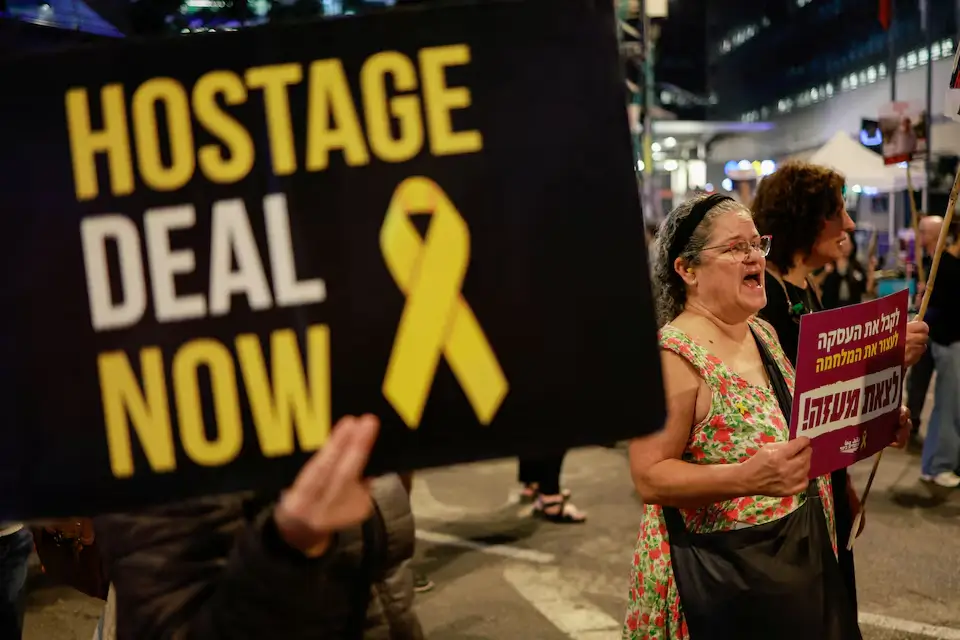Israeli Prime Minister Benjamin Netanyahu faces unprecedented legal pressure both domestically and internationally, potentially impacting ongoing conflicts in Gaza and Lebanon. As Netanyahu’s leadership continues to be scrutinized on multiple fronts, the outcomes of these legal battles could significantly alter the course of Israel’s political future and its military operations.
Netanyahu: ICC Warrants Shake Israeli Leadership
The International Criminal Court (ICC) has issued arrest warrants for Netanyahu and former defense chief Yoav Gallant, intensifying the pressure on the Israeli leadership. The charges include alleged war crimes and crimes against humanity related to the Gaza conflict.
- The Charges: Netanyahu and Gallant face accusations of targeting civilians, committing acts of deliberate starvation, and other actions during Israel’s military operations in Gaza.
- The Political Fallout: Netanyahu has vehemently denounced the decision, calling it antisemitic and unjustified, insisting that Israel’s military actions are aimed at protecting its citizens and not targeting civilians.
- International Restrictions: The warrants have significant diplomatic consequences, restricting Netanyahu’s ability to travel to the 124 member states of the ICC. This limits his diplomatic movements and could complicate Israel’s international relations as the warrants threaten to escalate tensions further.
Netanyahu’s Domestic Legal Battle Intensifies
Domestically, Netanyahu faces an ongoing corruption trial that could have far-reaching implications for his political career.
- Trial and Charges: Netanyahu is accused of bribery, breach of trust, and fraud, with key testimony scheduled for early December.
- Legal Setbacks: Previous attempts to delay the trial by citing national security concerns and his war responsibilities have been rejected by the courts.
- Potential Consequences: The trial’s outcome could bring an end to Netanyahu’s political career, depending on the court’s findings. Despite the legal pressure, Netanyahu has maintained his innocence, denying all charges and portraying the trial as a politically motivated attack.
Netanyahu’s Impact on Regional Conflicts
The convergence of Netanyahu’s legal challenges may have ripple effects on Israel’s ongoing military operations, particularly in Gaza and Lebanon.
- Ceasefire Negotiations with Hezbollah: The ICC warrants and the domestic corruption trial could complicate ceasefire negotiations with Hezbollah, as Netanyahu’s leadership is increasingly seen as under siege.
- Hostage Negotiations with Hamas: The pressure from his legal challenges could also affect Israel’s negotiations with Hamas, as Israeli officials suggest that these external pressures may embolden Hamas and Hezbollah to increase their demands for concessions.
- Military Strategy: Analysts speculate that Netanyahu might adopt a harder military stance in response to the international pressure stemming from the ICC warrants, potentially leading to a more aggressive approach to the conflict.
Netanyahu’s Public Response and Political Implications
The political ramifications of Netanyahu’s legal challenges are being felt across Israel, where public support is divided.
- Public Opinion on ICC Warrants: There is widespread Israeli support against the ICC warrants, with many seeing it as an unfair attack on Israel’s right to defend itself. This support crosses political lines, uniting citizens in their opposition to international interference.
- Corruption Trial Divisions: The domestic corruption trial, however, remains deeply divisive, with Netanyahu’s critics pushing for accountability while his supporters argue that the charges are politically motivated.
- Declining Trust: Netanyahu’s public trust has also taken a hit following the October 7 Hamas attack, with many Israelis questioning the government’s handling of the situation. Netanyahu has refused calls for an independent commission to investigate the conduct of the war, opting instead for a politician-led inquiry that has been met with criticism.
Netanyahu’s International Diplomatic Fallout
On the international stage, Netanyahu’s legal challenges could further isolate Israel.
- Support from the US: As a non-ICC member, the United States has remained a safe haven for Netanyahu, providing political support.
- European and Global Stance: While some European nations have supported Israel, others have begun to distance themselves, and there are increasing calls for accountability for Israel’s actions in Gaza.
- Hungarian Support: Hungary, a staunch ally of Israel, has pledged to ignore the ICC arrest warrants, further complicating international diplomatic relations.
- Future Diplomatic Isolation: Israeli officials are working to lobby Western allies for support, but some analysts suggest that Netanyahu’s growing international isolation could lead to potential sanctions against ICC officials under future political changes, such as a potential Trump administration.
Conclusion: Netanyahu at a Pivotal Moment
The convergence of legal and political challenges presents a pivotal moment for Netanyahu’s leadership and Israel’s military operations. As both domestic and international pressures mount, the potential outcomes of these legal battles will shape not only Netanyahu’s future but also the course of the ongoing conflicts in Gaza and Lebanon. With implications extending far beyond regional security, Netanyahu’s legal issues represent a test for Israel’s political stability and its international standing.

